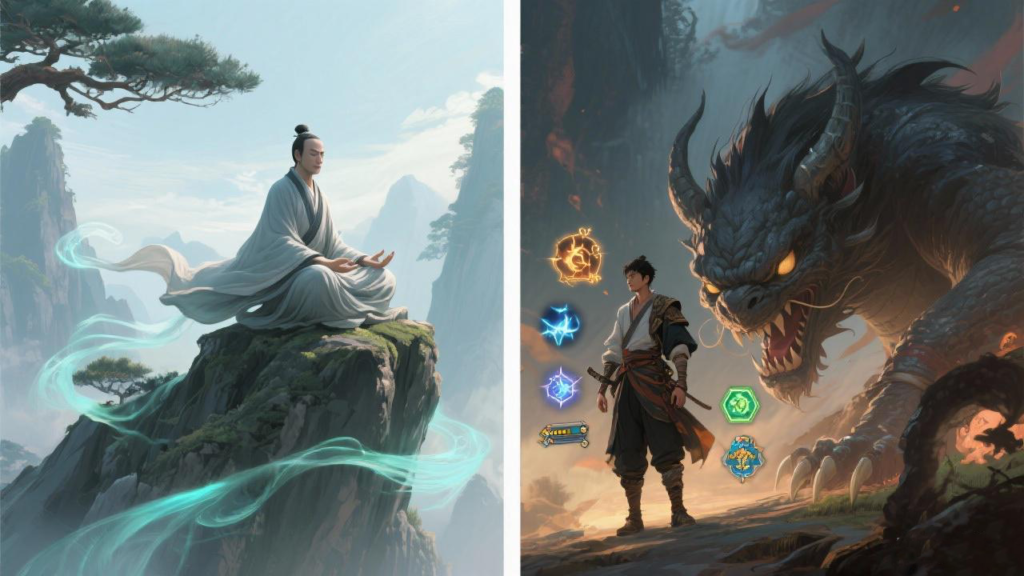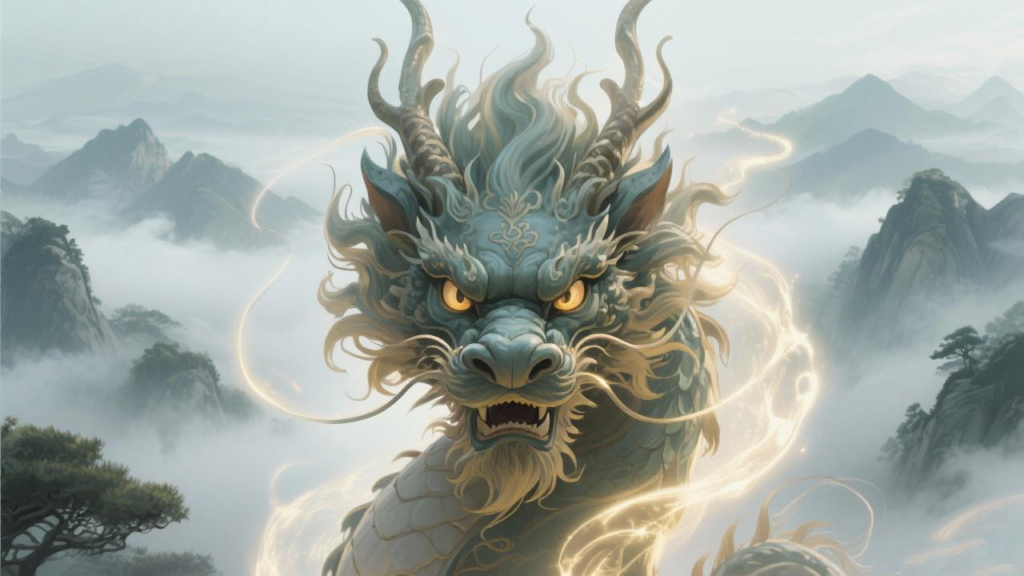The differences between Chinese fantasy vs Japanese fantasy are a big topic for fans all over the world. Have you ever wondered why a Chinese webnovel feels so different from a Japanese light novel? That’s what we’re going to talk about. The answer lies in their unique cultures and storytelling styles. While both genres give us awesome adventures, the worlds themselves, from the magic systems to the monsters, are built on completely different ideas.
This guide will break down the key differences between these two types of fantasy. We’ll look at how magic works, what monsters are for, and what makes the hero’s journey so unique in each one.
How Magic Works: Cultivation vs. Innate Skills
The biggest difference between these two types of fantasy is where the power comes from. In Chinese fantasy, a hero’s power is earned through hard work. It’s all about a process called cultivation.
In a cultivation novel, characters train their bodies and minds to pull in energy from the world around them. This is a very long and difficult process. It has many clear steps and levels. A character’s power is something they earn little by little. This system is a powerful metaphor for self-improvement and hard work. The hero has to face endless trials, break through bottlenecks, and maybe even get lucky with a powerful master or an ancient pill. This focus on constant effort is a core idea. It reflects cultural beliefs in perseverance and delayed gratification.
Japanese fantasy, on the other hand, often uses a different system. Power is more of a gift or a skill that’s just a part of the hero. For example, in an Isekai novel, the main character might be reborn with a unique ability. They might have a skill like “Unlimited Blade Works” or a system that gives them a special advantage. The story is more about how they use this gift to survive in a new world. The journey is not about gaining power from zero, but about mastering and using what you already have. This often leads to fast-paced stories where the hero is quickly a force to be reckoned with.
The Role of Monsters: Resources or Just Foes?
Monsters are a big part of both genres, but they have a different job. In Chinese fantasy, monsters are often seen as a resource. A character might kill a spirit beast to get its core or its blood. These parts are then used to make powerful pills, magical weapons, or enhance their own bodies. Monsters are part of the power ecosystem. They are a challenge that gives a clear reward. For example, a cultivator might spend an entire chapter hunting a rare beast just to get one valuable part.
In Japanese fantasy, monsters are usually just a threat. They are a bad guy to be defeated. Killing them might get you some points or a rare item, but their main purpose is to test the hero. They are the obstacles in a dungeon or the big boss at the end of a quest. Think of them as hurdles in a video game. They are a clear enemy to be defeated to get to the next level. Their value is often in the experience points they give, rather than their physical parts.

The Story’s Core: Wuxia & Xianxia vs. Isekai & JRPGs
The narratives themselves are shaped by their cultural roots. Wuxia and Xianxia stories are heavily influenced by Chinese history and philosophy. They often have complex family groups, ancient sects, and a focus on fate. A hero’s journey is often a long, multi-level epic that goes beyond one world. The goal is to become an immortal or a god. This kind of story is a big part of Chinese culture and history, with heroes often fighting not just for themselves, but for their entire clan or sect.
Japanese fantasy, especially Isekai, feels a lot like playing a video game. It’s influenced by JRPGs. The main character has a clear level system, party members, and quests. The hero’s main goal is usually to defeat a demon king or save a kingdom. The story is often more about the hero’s personal journey and doesn’t always have a huge cosmic goal. The narrative is often more focused on a single adventure or a small party of heroes. This is a lot like the party-based system and quest-driven plot you see in games like Final Fantasy or Dragon Quest.
For more information on the deep ideas behind these genres, you can check out this article on the Wuxiaworld Wiki that talks about the history of Wuxia and Xianxia.
The Protagonist: A Long Grind vs. A Quick Start
The heroes in these stories have very different personalities and goals. In Chinese fantasy, the protagonist is usually an underdog at the beginning. They are often a “waste” or “cripple” who must work hard to prove everyone wrong. They are driven by a need for revenge, a desire to protect their family, or the ambition to reach the very top. Their journey is a long, hard climb.
In Japanese fantasy, especially the Isekai subgenre, the protagonist is often an ordinary person from our world. They are suddenly dropped into a new, magical world with a special power or knowledge. They are usually kind, a bit clueless, but also very lucky. Their journey is about adapting to the new world and using their special powers to survive and thrive. They don’t have to spend years training. They are already special. This is a huge reason why these stories are so fun to read.

The End Goal: Godhood vs. A Happy Life
The end goals for the heroes are also very different. For a hero in a Chinese fantasy story, the ultimate goal is almost always transcendence. They want to break free from the cycle of life and death, to become a god-like being, or to stand at the top of the universe. The story is about an endless journey of self-improvement and power.
For a Japanese fantasy hero, the goal is often much simpler. They want to defeat the demon lord and go home. Or they want to build a quiet life in the new world. Or they want to get married and have a family. The goal is often about finding a place to belong, not about conquering the cosmos. This makes the stories feel more focused on the hero’s personal happiness rather than their ultimate power.
To dive deeper into the world of Chinese fantasy, check out our guide on the Top 10 Overpowered Characters in Chinese Fantasy.
Why It All Matters to Readers
Knowing these differences is the key to finding the right novel for you. If you like stories about hard work, earning power, and a long, huge journey, a cultivation novel might be perfect for you. If you like a story that moves fast with clear goals and a hero with unique skills, Japanese fantasy might be more your style.
Both genres create amazing worlds that readers love to get lost in. They just do it in very different ways. The next time you’re looking for a new read, you can make a smarter choice based on the type of story you want.
